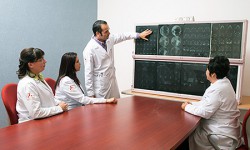
At Issels®, we want you to know more about existing and up-and-coming professionals who have dedicated their lives to treating and curing cancer using precision medicine. Marissa Market, a 21-year-old from Essex, Canada who recently graduated from the University of Windsor with a degree in biology, is one of those amazing people.
As noted by The Windsor Star, Marissa first announced to her parents her intention to cure cancer when she was still an elementary school student. Since that time, she has never forgotten that goal.
Amazing Facts About Marissa Market
- Marissa’s youth was filled with achievements. She studied in The International Baccalaureate program, co-authored a textbook about epigenetics and volunteered in the research lab of Dr. Lisa Porter at the University of Windsor when she was only in 9th grade.
- She gained a lab position with Dr. Porter as a college sophomore and won NSERC government grants three summers in a row so she could research mutations of a protein called tuberin that causes one type of cancer.
- Marissa, competing against 1,600 others, won one of only four available openings in the University of Ottawa’s prestigious seven-year MD/PhD program that focuses on physician and cancer treatment research graduate study because she plans to research viruses and other techniques used to fight cancer.
Marissa Market represents a new generation of doctors who specialize in research. This type of combined study means that these physicians are uniquely qualified to provide the best precision treatments to their patients.
For more information about Marissa and other cancer treatment pioneers, or to talk with us about our integrative immunotherapy methods, contact our Issels® team today.





